Jakarta, MINA – Coronavirus or Covid-19 has caused panic and a huge reaction from the international community. Many people hunt for masks, making it rare and expensive to price goods in some countries.
Another case with Taiwan, according to the Taipei Economic and Trade Office (TETO) press release received by MINA on Thursday, in Taiwan, now everyone can buy medical masks, and the price of masks does not increase (one sheet of mask is equivalent Rp. 2,000).
How does Taiwan do it? Following are six Taiwan mask policies to prevent Coronavirus:
First: The Taiwan government has taken earlier action to prevent epidemics
Also Read: Pakistan Condemns Israeli Settler Attacks in West Bank, Al-Aqsa Storming
Taiwan government has started to prevent epidemics early, ahead of Japan, South Korea and Europe.
Taiwan, expressly adopted measures to prevent Wuhan pneumonia on December 31 last year. After the epidemic in China gradually spread, Taiwan established an epidemic command center on January 20 to deal with efforts to prevent national epidemics.
The Taiwanese government has long recognized the danger of coronavirus and pursued anti-epidemic measures from the beginning. It is an important key to the success of preventing epidemics in Taiwan
Second: The Taiwan government’s mask policy of “Opening Inflows and Saves Outflows.”
Also Read: China Criticizes US-Drafted UN Gaza Resolution as Vague, Abstains from Vote
With the experience of combating SARS in 2003, the Taiwanese government realized that the mask would be one of the anti-epidemic objects targeted by the public. Moreover, coupled with masks produced by Taiwan which are very limited.
More than 80 percent of masks are imported from abroad every year. To “save the outflow”, on January 24 the Taiwanese government announced a temporary ban on medical masks exported abroad.
Third: Taiwan government’s decision to buy medical masks throughout the country, distribute and sell them nationally.
Responding to the very high demand for masks from the community, there was even a queue of purchases and an increase in the price of masks.
Also Read: Former Bangladesh PM Sheikh Hasina Sentenced to Death
To convince the public, Taiwanese government decided to buy medical masks produced throughout the country in early January 31 and simultaneously commissioned the Epidemic Command Center to distribute to medical units, as well as to national minimarkets and pharmacies to sell at the same price to citizens throughout the country.
Since then, the price of medical masks in Taiwan has been set at the same price by the government and there will be no increase in prices. The success of Taiwan government’s mask policy has begun to be applied by other countries, for example, France on March 3 announced that it would buy and collect masks to distribute it nationally.
Fourth: Taiwan formed the “National Mask Team” and actively “Opened the Inrush” mask
Because mask production in Taiwan is very limited, to meet domestic demand, Taiwan government decided to invest around NT $ 200 million on January 31, hoping to add 60 mask production lines in a short time.
Also Read: Pakistan Declares State of War After Car Bomb Incident
As a result, dozens of major Taiwanese machine and technology manufacturers actively respond to government policies, and provide voluntary and material human resources free of charge to form a national mask team to jointly build additional mask production lines.
Thanks to everyone’s efforts, which originally took to build 60 mask production lines in six months, could be completed in less than a month, allowing Taiwan’s medical mask production to increase 10 million pieces per day in early March.
In addition, Taiwan Government has invested an additional 30 new production lines, and expected to be completed in stages by the end of March to increase mask production. St that time, Taiwan will become the second largest mask producer in the world.
Fifth: Taiwan government precedes other countries in implementing the “Original Identity System for Purchasing Masks”
Also Read: Jakarta Hosts Gala Dinner for World Peace Forum Delegates
To enable everyone to buy masks and prevent people from hoarding masks, Taiwanese government has implemented an “Original Identity System for Purchasing Masks” since February 6. In other words, everyone has to go to pharmacies and health clinics throughout the country to buy masks using a national health insurance card, and each person is limited to the number of purchases per week on a certain day.
Residents must be based on the last number of the identity card number. For example those with odd numbers, can buy masks on Mondays, Wednesdays and Fridays every week, while even numbered ones can buy on Tuesdays, Thursdays and Saturdays every week, and only on Sunday only everyone (do not apply odd and even numbers) can buy a mask.
Nowadays, adults can buy three pieces of masks, and children can buy five pieces of masks per week on certain days. The price per sheet mask is still maintained at NT $ 5 (around Rp 2,000).
In the future, depending on mask production in Taiwan, the number of purchases per person per week will be increased. Taiwan became a pioneer in the application of original identity system for masks on 6 February, and then followed by other countries. For example, South Korea began implementing a similar original identity system on March 9.
Also Read: Indonesian Minister Urges Synergy Between Wasathiyah Islam and Chinese Wisdom
Sixth: Taiwan uses information technology to facilitate distribution by the government and purchase of masks by the public
The success of the original identity system for masks in Taiwan depends on a comprehensive national health insurance system and big data in the cloud.
The number of daily mask sales in various places can be reported online via the internet at any time.
So that, the government can find out which pharmacies have a shortage of masks or excess stock, and immediately renew the distribution of the number of masks at each pharmacy.
Also Read: New Delhi Covered in Toxic Smog: Residents Say ‘We Can Hardly Breathe’
In addition, Taiwan government and the private sector have also developed many applications for the purchase of masks.
As long as people use their cellphones, they can check the supply of masks in all pharmacy places via cellphones first before buying.
The Taiwanese government is currently exploring the launch of the “Original Identity System 2.0 for Purchasing Masks”, which uses a more accurate big data analysis in calculating the distribution of masks in various places.
In the future, some masks will be sold over the Internet to facilitate some employees who cannot take time off to go to pharmacy to buy because of work.
Also Read: Boat Carrying 100 Rohingya Migrants Capsizes in Malaysian Waters
A mask is a small object, but it is a very necessary preventive material for the public in dealing with the coronavirus epidemic.
Taiwanese government has taken steps such as “Opening Inflows and Saving Outflows” to provide security to the people of Taiwan.
As 300,000 Indonesians and other foreigners who live legally in Taiwan, can also enjoy the same rights as Taiwanese to buy masks using their national health insurance card and residence permit.
Through the medical superiority and technological strength of Taiwan, Taiwan is willing to share valuable epidemic prevention experience with all countries in the world. (AT/RE1)
Also Read: Dozens Killed in RSF Drone Strike on Sudanese Village During Funeral
Mi’raj News Agency (MINA)






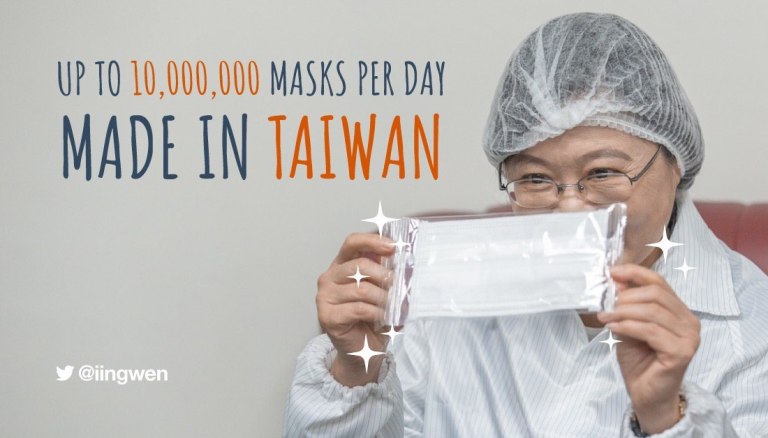




![Israeli tanks and APC’s gather by the Israeli – Lebanese border. Amid Israel’s escalating campaign against Hezbollah in Lebanon on September 30, 2024. [Erik Marmor/Getty Images]](https://en.minanews.net/wp-content/uploads/2024/10/IMG_20241001_203226-300x197.jpg)






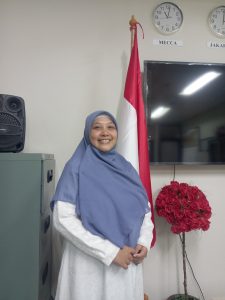
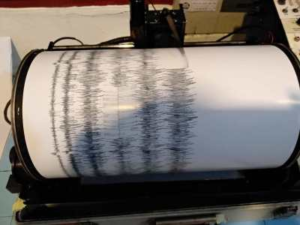
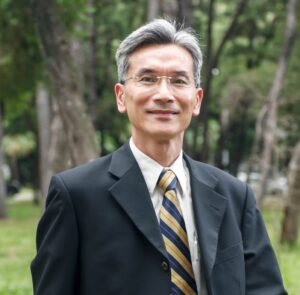
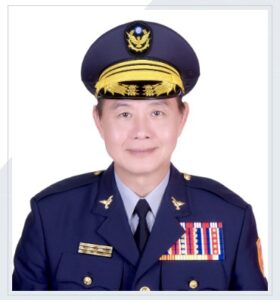











 Mina Indonesia
Mina Indonesia Mina Arabic
Mina Arabic